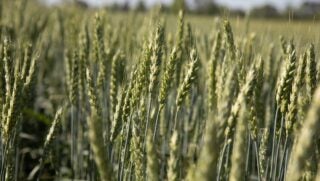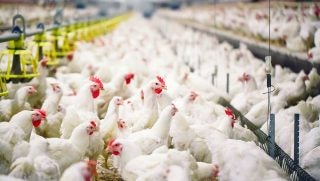Through the night of Nov. 5, 2021, the U.S. House passed a bipartisan infrastructure bill that intends to aid the United States in meeting climate goals, progress the country in providing good-paying jobs to millions of Americans, support infrastructure projects across the nation, and bolster our nation’s economy. This bill aims to spend $1.2 trillion in this effort, which will surely encourage necessary change in our nation.
In the process of passage, our nation has sent a message to farmers of color. The infrastructure bill has diverted the funding intended to support our nation’s BIPOC farmers in meeting their debt challenges to instead support a blanketed effort for new and existing farmers in funding outreach, education, and tech assistance programs. This action has watered down the egregiously systemic debt issues faced by BIPOC producers.
The bill had originally set to provide a historic amount of support for agriculture, intending to allocate $10.4 billion for U.S. agriculture and food supply programs with economic aid.
Of this funding, it was decided by law makers to allocate a total of $6 billion to relieve systemic debt of farmers of color in the United States, who for years had to overcome barriers of access in attaining a loan (provided by government entities like the U.S. Department of Agriculture and other local loan agencies) due to the color of their skin and the societal view that people of color, being deemed less than in comparison to their White counterparts. (For more in depth analysis of these disparities, please see my piece titled Perspective: The Emergency Relief for Farmers of Color Act: Why we need it and how to support.)
However, this funding was halted in late June 2021 when a lawsuit was filed by a group of White farmers. This caused the funding for Emergency Relief for Farmers of Color Act to sit in limbo. Lawsuits against the federal government, specifically Secretary of Agriculture Tom Vilsack, began to role in. Even though the Department of Justice recognized the evidence of prior discrimination of farmers of color as “vast” — and House Agriculture Committee Chairman David Scott adding strong support of Vilsack for standing up for this “critical and much-needed legislation” — the voices and experiences of BIPOC farmers buckled under the pressure of legal action against the U.S. government, touting “inequity” when the very ones touting these cries have never experienced discrimination on the basis of race; a trait of being human out of one’s control but we as a country have made the very reason for support or no support, comfort or survival, life or death.
By diverting the intended funding for BIPOC farmers, we as a country are essentially saying to them: “We are ALL struggling …”, while negating that the reason why each ethnic group in agriculture is struggling economically.
It’s not based on who worked more or less for what they have. This funding was intended to support folks who have struggled under a set of historical, systemic, and racially based ideas that may not be as blatant today but doesn’t mean they don’t still exist. Old ideologies about race and people of color have impacted BIPOC farmers negatively in today’s context, and historically unjust policies and their potency has led many BIPOC farmers to not have enough generational stability to continue on sustaining themselves in this industry.
Here is the thing, all of us are guilty of perpetuating unjust policies or actions against a group of people. But we are all a part of the solutions too. We may not be able to reverse funding or passage of a huge federal government plan, but we can be the grassroots advocates that eventually bloom radical change in these spaces.
It has been argued that the Emergency Relief for Farmers of Color Act was unconstitutional, discriminating on the basis of race.
We can choose to believe that, and at face view that seems like a reasonable argument. However, if we look deeper and see people as human, understand their mistreatment for an uncontrollable factor of who they are, and work to understand their challenges based on these uncontrollable factors, then does our perception of this “unconstitutional” funding plan change? Have we done the work to understand the shoes of those who would have been supported by this plan? Their life? Their context of living? Their family history? And not just our “one friend,” but a whole community of BIPOC farmers. If we don’t have that perspective, then how can we truly make a decision or speak on the livelihoods of a group of people justly.
To be a part of the solution, we must understand where we are all coming from. Once we know that, we can work together to solve the issues facing each of us and build a better U.S. agriculture industry that is truly in support of all people working within it.
For now, we unfortunately wait for a time in history where the voices of BIPOC people are not only heard but acted upon equitably.
Bre Holbert is a past National FFA President and studies agriculture science and education at California State-Chico. “Two ears to listen is better than one mouth to speak. Two ears allow us to affirm more people, rather than letting our mouth loose to damage people’s story by speaking on behalf of others.”



